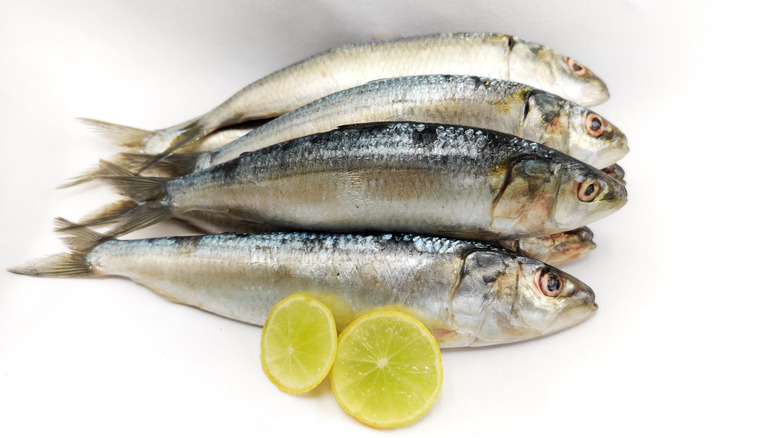You Should Limit Eating These Kinds Of Fish If You Suffer From Gout
Gout is a painful form of arthritis that is caused by crystals that accumulate in and around one or more joints (via Mayo Clinic). These crystals are caused by high levels of uric acid in the blood. Gout attacks, which involve severe pain and inflammation, can come on at any time and are extremely uncomfortable to deal with. One way to manage gout symptoms is to follow a specific diet that is high in foods known to decrease the levels of uric acid in the blood. A gout diet will not cure the condition, but it can make it much more manageable.
Some types of protein have been found to increase levels of uric acid, including certain kinds of seafood. Anchovies, shellfish, sardines, and tuna are all higher in purines than other kinds of seafood. You should limit your consumption of these types of seafood if you have gout. However, fish offers many health benefits and should be a part of a healthy diet. Seafood that contains lower amounts of purines includes crab, lobster, oysters, and shrimp (via MedicineNet). You should be able to eat these in moderate amounts on a gout diet.
Other foods to limit on the gout diet
The gout diet is generally a well-balanced diet that cautions against some specific foods that can make your gout worse. According to Verywell Health, the best foods to eat on a gout diet include vegetables, low-fat dairy products, and whole grains. Some types of meat are okay, but plant-based proteins like tofu are especially low in purines that can increase uric acid in the body. Other foods to enjoy include beans, lentils, citrus fruits, cherries, and coffee.
In addition to some types of seafood, there are other foods you should limit in your diet if you have gout. This includes red meat, organ meats like liver, beer, and sugary foods. All of these foods can increase the amount of uric acid in your body and cause a gout flare-up. However, everyone has different tolerances to foods and you may find that you need to eliminate other foods to avoid flare-ups. You may also find that some of the foods on this list do not affect your gout. Keep track of which foods help or hinder your symptoms and stick to that diet for the best success.


